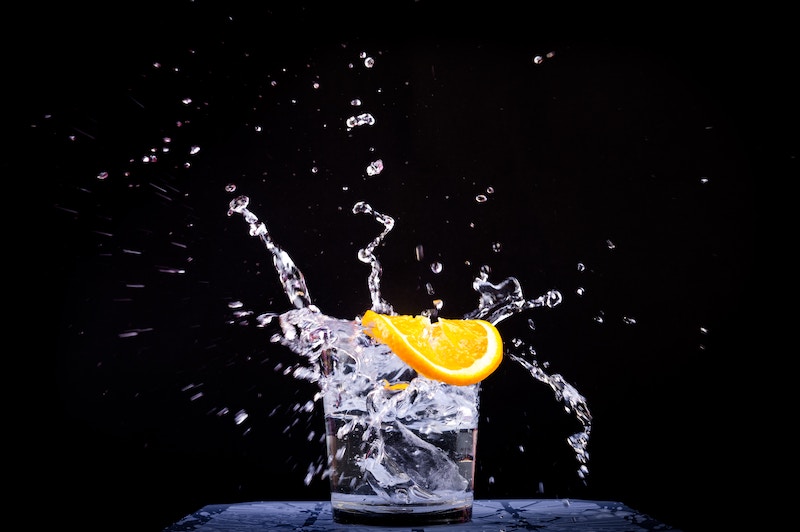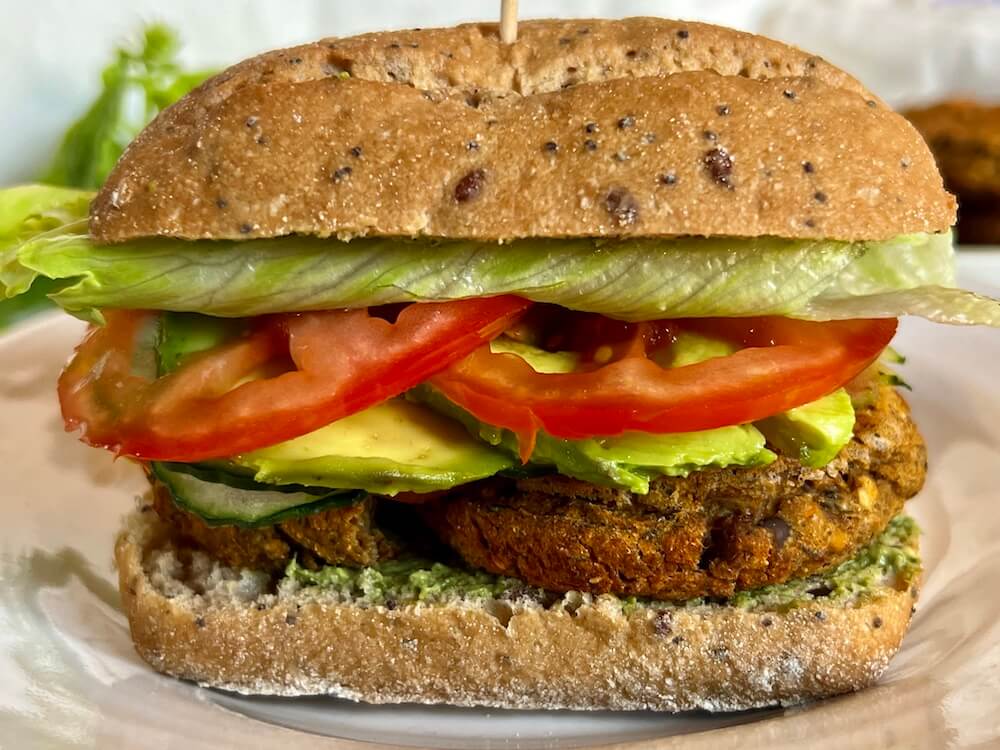Are you curious about the role of water on an OMAD diet? Do you want to lose weight or get healthy and you’re thinking of going OMAD?
Maybe you’re interested in looking younger, feeling healthier or living longer?
Whatever your motivation, water’s an essential key to sailing smoothly through OMAD, whether your goal is to burn fat or to reap the health benefits from fasting and autophagy.
(autophagy = when the body clears up its dead, damaged, weak or infected cells and recycles them.)
Some of us underestimate the importance of water in our intermittent fasting experience. It’s understandable when you think about it. Because we forget to drink.
We’re often focussed on the eating window, with concerns like what you can eat during intermittent fasting, while ignoring the fasting state.
But it’s important not do that because the fasting state is equally important to get right.
We should also focus on drinking water throughout the fasting window if we want to lose weight, become healthier and not struggle with doing OMAD.
In this article we share the main reasons why water is so important on an OMAD diet.
If you want to know what else you can drink while practising intermittent fasting, there’s another post on that which you can visit.
And if you haven’t tried intermittent fasting yet, you may like to take a look at our complete guide to intermittent fasting for vegans.
Feature image by Camille Brodard on Unsplash
Table of Contents
- #1 Drinking Water Reduces Hunger
- #2 Water Detoxifies the Body
- #3 Water Lubricates the Digestive Tract
- #4 Burn Calories by Drinking Water
- #5 Water Supports Lipolysis (Fat Burn)
- #6 Water Boosts Energy
- #7 Regulates Body Temperature
- #8 Prevents Dehydration
- #9 Enhances Exercise Performance
- Final Thoughts on the Roles of Water on an OMAD Diet
#1 Drinking Water Reduces Hunger
The idea of drinking water may not sound very filling, but when the stomach receives the water it sends signals to the brain which are similar to a food response.
In effect, the water in your stomach confuses the hypothalamus, the part of the brain responsible for appetite and thirst, and therefore reduces your hunger levels.
Sometimes you may think you’re hungry when in reality you’re actually thirsty.
And just as food can trick your mind into sending the thirst away, this process can also works in reverse, where water satisfies your hunger.
If you were to drink a sugary drink instead of water for example, not only will it trigger the digestive system but it can also set up cravings, making fasting much harder to do.
This is one reason why fasting with a hangover isn’t recommended.
During fasting times especially, water becomes a perfect way to reduce or eliminate any hunger pangs and keep everything running smoothly.
#2 Water Detoxifies the Body
Water lubricates the entire system and helps to flush out toxins by supporting the liver and kidneys to function well.
The kidneys remove waste products from the blood, eliminate toxic substances in the urine, and receive water-soluble toxins from the liver for processing.
When the organs are dehydrated, toxins build up in the system, eventually leading to health issues.
Water helps the body to eliminate toxins through the skin pores via sweating, through breathing, and via urine and faeces.
#3 Water Lubricates the Digestive Tract
Water lubricates the digestive tract and helps prevent constipation. When fasting, the digestive tract can also become dried out and constipated, so it’s important to hydrate it even in the fasted state.
When we eat our OMAD meal water helps to break down the food into smaller pieces that are more easily digested, and water also mixes with our gastric juices to enable digestion.
Water is also responsible for carrying the nutrients obtained from our food to the rest of the body as well as diluting the acidity in the stomach.
#4 Burn Calories by Drinking Water
Drinking water has been shown to slightly raise the metabolism. It’s called the thermogenic response and it refers to the fact that the body has to raise the temperature of the water to match body temperature.
And doing that takes calories. In one study, the metabolic rate was evaluated and it was concluded that the metabolism was raised by 30% for a period of time starting 10 minutes after drinking and ending 30-40 minutes after drinking the water.
Some people advocate drinking ice-cold water to increase the amount of calories burned, but it is a controversial topic, with the opposing argument stating that ice-cold water has some detrimental health ramifications and should be avoided.
#5 Water Supports Lipolysis (Fat Burn)
This is an essential one to remember!
Lipolysis is the name given to the process in which the body breaks down fat into fatty acids and glycerol, ready to be converted into useable energy for bodily functions.
When the body is dehydrated lipolysis can either slow down or stop altogether.
So if you want to burn fat, keep up the water!
#6 Water Boosts Energy
Water plays a role in most metabolic functions, including the production of ATP (adenosine triphosphate), the primary energy source for cells. A lack of ATP leads to tiredness and lethargy, including cognitive apathy.
But it isn’t only ATP that effects our mental and physical alertness as water is involved in improving blood flow, regulating body temperature and supporting the function of all organs and tissues.
Water also helps combat dehydration as a result of not having drunk sufficient water, or from drinking alcohol.
And water carries nutrients, not only to other parts of the body but also to the brain, stimulating activity and vitality.
#7 Regulates Body Temperature
Water can absorb heat energy without particularly changing its own temperature which makes it perfect for helping us to maintain our body temperature.
If we get too hot, our sweat glands use water to create sweat. As the sweat evaporates from our body it helps to cool us down.
The body needs water to be able to produce sweat and with more water, the more it can sweat.
The body responds to cold by constricting the blood vessels near the skin’s surface to reduce blood flow and save heat but if we are dehydrated it can be more difficult for the body to react to heat/cold.
#8 Prevents Dehydration
The human body is made up of 55% – 65% water and water is continually being excreted and lost via the organs, skin, urine and feces.
As soon as we consume less water than we excrete, we become dehydrated. Mildly at first, and often without knowing it.
We can become dehydrated with just a small shortfall of water and one study of 200 patients over the age of 65 showed that 37% of them were suffering with dehydration.
In the national library of medicine however, it’s estimated that the true figure is nearer to 75% of the population of America who are actually dehydrated.
Drink your water!
#9 Enhances Exercise Performance
Through all the processes that water facilitates in the body, water can enhance exercise performance and reduce the risk of dehydration.
Water is also responsible for lubricating joints, tendons and ligaments and transporting nutrients to all parts of the body, including to the muscle tissue.
Water’s especially necessary to replenish the sweat lost during exercise.
Final Thoughts on the Roles of Water on an OMAD Diet
By regulating all the bodily functions, keeping the sensation of being full and even slightly raising the metabolism, drinking water helps with health and weight loss more than you might think.
We’re all guilty of forgetting to drink water at some point or other. What we might not realise is just how much water affects our organs, metabolism and overall health.
This is especially true in OMAD so start to measure how much water you’re actually drinking in a day. And if you’re wondering why OMAD isn’t working for you, not drinking enough water could be a factor.
One simple way to make sure you drink enough is to use a bottle for drinking. Only fill it up when it’s empty and count how many bottles you drink during the day.
If you’re diving into OMAD I really recommend you actually drink water all through the day. You can also drink herbal teas and black coffee without breaking the fast.
So go grab the health benefits and burn off some fat by doing OMAD!








